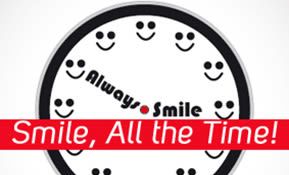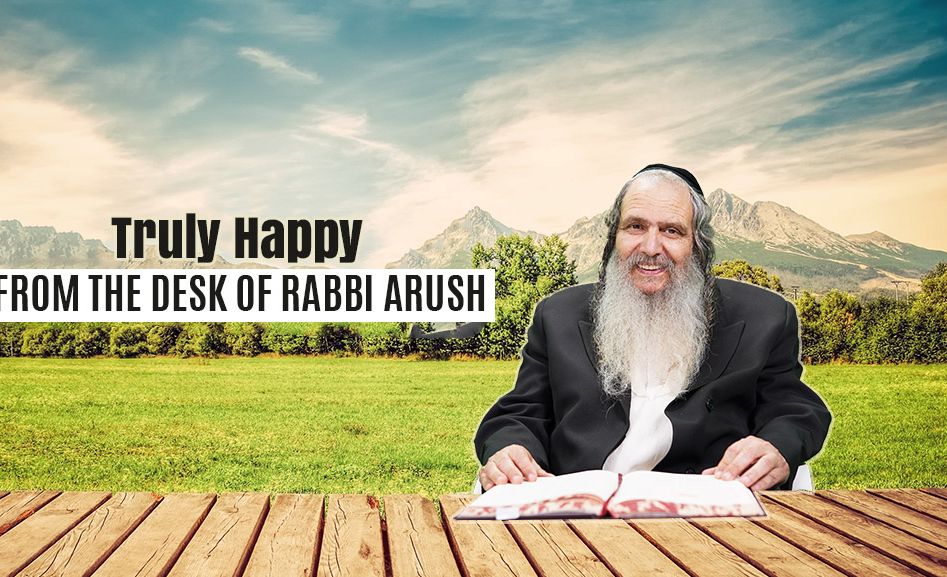
Our True Task
Knowing that Hashem wants us to refine a particular character trait, we are able to choose our response rather than just act out without forethought…

We work hard for our livelihood and at solving problems that arise in life – problems involving relationships, mistakes made by people who we hire to do things for us; money matters, and of course, health. We work hard in areas that cause us much worry and stress. We wind up complaining, arguing, criticizing, blaming others, and becoming frustrated because we have to wait too long to get an answer to a question about our bank statement or because our washing machine broke down or because the slow driver is blocking traffic.
Worries and anxiety stem from a mindset that is not aligned with the Torah. We do not see Hashem’s hand in these matters. If we did, we would know Who to turn to. It would not be the banker, the appliance repairman, or the overly cautious driver at whom we just honked. It would be to Hashem, and we might get some clarity as to why each individual test is presenting itself specifically to us. We would not waste so much precious time being aggravated and annoyed.
What happens in our lives is not a series of random things to worry about. Some tests are extraordinarily difficult to pass and can be very painful, while some are much easier to deal with. We still need to work hard but in an arena apart from earning a living and stressing over things that happen to us. We need to first identify if we are being tested. If the situation that presents itself is difficult for us, then for sure we  can consider it a test.
can consider it a test.
There are different categories of tests to evaluate various middot (character traits). Some examples are:
- Patience vs. impatience
- Humility vs. haughtiness or arrogance
- Acceptance vs. intolerance
- Ambition vs. laziness
There are also the tests of composure vs. anger, generosity vs. selfishness, restraint vs. over-indulgence, joy vs. depression, healthy desires vs. lust, faith vs. fear, and self-control vs. emotionalism. The most important tool in passing one of Hashem’s tests is the ability to recognize it as a test from the Almighty. Once we see Hashem in any situation, we see the bigger picture. Knowing that Hashem wants us to refine a particular character trait, we are able to choose our response rather than just act out without forethought.
Why does G-d present us with challenges? There are three basic reasons:
- If everything was always perfect, we would become entitled and self-centered, only wanting more but not willing to give;
- G-d wants us to partner with Him in solving life’s issues through strengthening our emuna (faith) and bitachon (trust);
- G-d wants us to utilize our potential to become great by overcoming our character flaws.
For example, the mitzvah of avodas achilah (eating) is related to the challenge of over-indulgence vs. restraint. Being mindful of our eating habits is a huge mitzvah. Eating is a spiritual act. Eating with manners (derech eretz) is super important. We serve Hashem by consuming healthy foods, saying blessings over kosher food with the intent to have energy to serve the Creator, and eating slowly with decorum and refinement. When we have access to plenty, sometimes we over-indulge, and that can be as much of an issue as not having enough food to eat.
In either case – both having too much food available and struggling to put food on the table – are instances where emuna is the answer. We put in the proper effort to help ourselves, and then we enlist G-d’s help by talking to Him. This partnership is the secret to success and defeating the yetzer hara that seeks to pull us down. Judaism measures success by the effort we make. The outcome is determined by G-d. Conferring with Him regularly is a key to correcting our middot (character traits). Only Hashem can help, so it makes sense to turn to Him.
If circumstances arise whereby we have to wait until an appliance can be fixed and we stress and worry about the future because of the delay, Hashem is, most probably, testing our patience. This generation is over-indulgent, largely, and has a propensity toward instant gratification. Hashem commands that we learn to delay gratification and not make a mountain out of a mole hill.
When we insist on getting what we want when we want it, we are going against emuna. It becomes time to look at the situation through spiritual eyes.
We, humans, need impetus to refine our thoughts, speech, and deeds and to strengthen ourselves. It does not come naturally. G-d created the yetzer hara (evil inclination) in the different areas to provoke us so that we need to partner with Hashem to refine ourselves. The yetzer hara exists specifically so that we work to defeat it, and in so doing, become better people. We are expected to work hard at this job. This is our task in this world.
When we become better, we infuse the world with the positive energies needed to elevate our lives and the lives of others. We evolve to match the marvelous advancements in technology with an equally advanced spiritual essence so that the emotional component is aligned with the material and the physical. We are being Divinely called to rise above our nature and reach our highest potential. When we remain calm when things do not go our way or when things don’t happen on our time frame, we pass the test.







Tell us what you think!
Thank you for your comment!
It will be published after approval by the Editor.